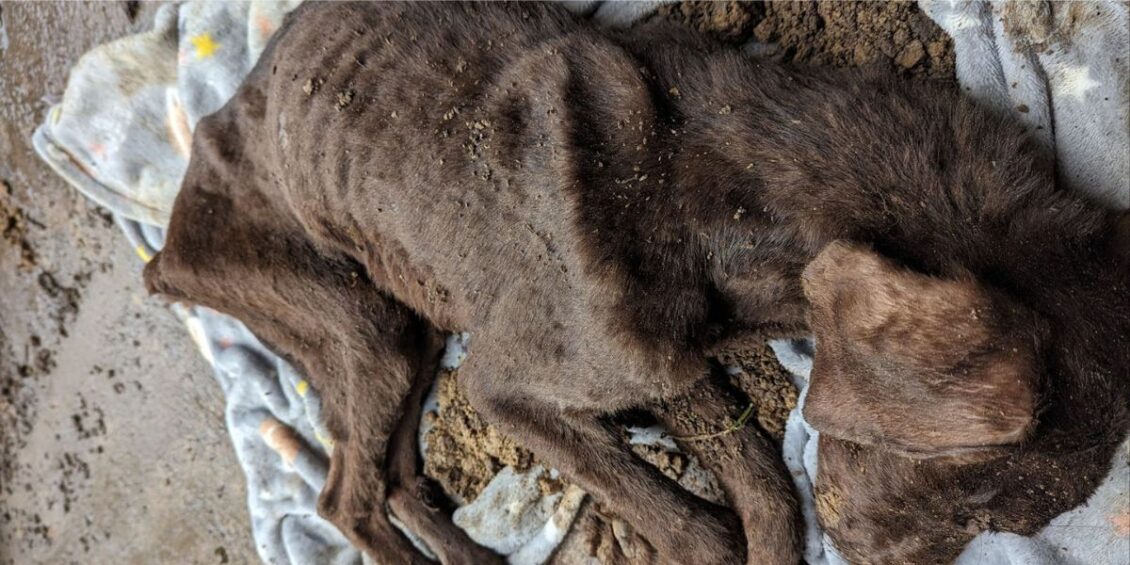A Wrexham woman has been disqualified from keeping all animals for three years after she admitted to causing unnecessary suffering to her young dog – whose dead body was found in an emaciated condition.
Stacey Louise Ince-Stamp of Wrexham, appeared at Wrexham Magistrates’ Court on 8 October for sentencing after previously pleading guilty to one offence under the Animal Welfare Act.
The offence was that she caused unnecessary suffering to a male brown cross Weimaraner type dog, named Dougie, by failing to investigate and address the causes of his poor bodily condition, weight loss and sickness.
At sentencing she was fined £120 and ordered to pay a victim surcharge of £48. She was disqualified from keeping all animals for three years.
The court heard how RSPCA Inspector Anthony Joynes, went to investigate an allegation of neglect regarding a young dog that was said to have died without adequate veterinary care at an address in Wrexham on January 21 (2024).
In a statement read in court he said: “I attended the rear garden and observed a deceased young brown cross breed dog wrapped in a blanket next to a shallow grave.
“The body was not in rigour mortis and the eyes were intact but sunken. The carcass was in very poor bodily condition and I noted it to be emaciated with spine, ribs and pelvic bones clearly visible. I noted a lack of fat and muscle coverage in areas like the skull and scapula.”
Inspector Joynes was given permission to remove the carcass. He added that Miss Ince-Stamp stated that she felt Dougie had “possibly eaten some rat poison and had become unwell and had died”.
Dougie’s body was examined by a veterinary surgeon and he was given a body condition score of one out of nine and weighed 9.7 Kilograms – meaning he was severely underweight and emaciated. The appropriate body score for healthy dogs is five out of nine.
In a statement provided to the court by the vet, they said that they were not able to determine the cause of death so the body was sent away for a post-mortem examination.
This found a “generalised loss of muscular tissue in skeletal muscle” and there were red irritated areas in the large intestine and the large intestine contained dark brown to black digesta. The stomach was filled with a large amount of food – dry dog kibble, potato wedges, pizza and other human food leftovers. A plastic object was also found as well.
The vet statement said that the post-mortem report suggested “that there was no clear medical cause of the dog’s poor condition”.
She added: “Due to presence of food in the stomach we’re able to say that the dog was eating and feeling hungry and was not refusing to eat.”
“In my professional opinion the dog was suffering due to an inappropriate diet causing hunger, weakness and severe weight loss. Dougie was not diagnosed with any disease which would cause weight loss.
“Constant hunger apart from poor body condition causes frustration, nervousness and fear. It can lead to dehydration, anaemia and eventually organ failure in extreme cases. Hungry dogs often ingest foreign bodies in acts of desperation. That can cause several life threatening conditions – stomach ulceration, intestinal obstruction.
“Human food is not an appropriate diet for the dog, foods like pizza do not provide any nutrition and can irritate the gastrointestinal tract or even poison the dog.
She added: “A reasonable owner would seek veterinary care or feeding advice in case of sudden or chronic weight loss of an animal and follow veterinary advice (recheck consultations, diagnostic methods). Likely in this case lack of adequate diet caused the death of Dougie. The cause of weight loss should have been investigated by veterinary surgeons weeks earlier to avoid getting the animal to that severe state.”
Following sentencing Inspector Joynes said: “This was a really sad case involving a very young dog at the beginning of his life.
“His suffering could have been avoided and he was tragically let down by the person responsible for him. I hope our investigation has meant that Dougie’s suffering hasn’t gone completely unanswered.”








Leave a Reply
View Comments